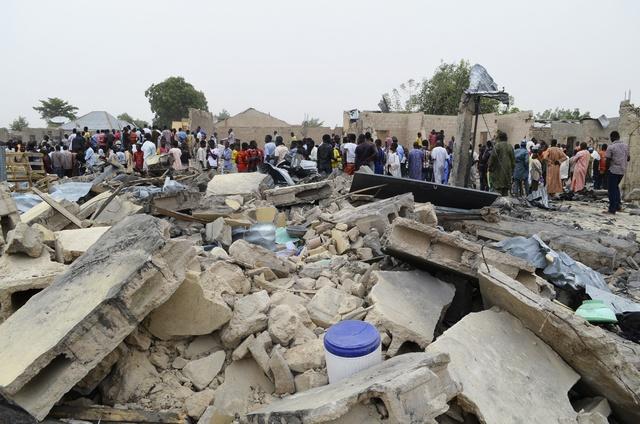Since the Boko Haram insurgency began in 2009, Nigeria, especially its northeast region has been dealt with catastrophic blows that have often prompted international concerns.
In the last decade, the Boko Haram insurgency has claimed at least 20,000 lives and displaced an estimated two million people. Many businesses have shut down across north-eastern Nigeria ever since, driving citizens into panic and forcing many to relocate to other states.
According to Borno State Government, about one million houses and public structures have been destroyed by Boko Haram insurgents in the 27 local government areas of the state.
The insurgents have also destroyed properties worth over N1.9tn in the past six years.
The insurgents have razed down 986, 453 residential homes; 5, 335 classrooms, 201 health facilities, 1, 630 water facilities and 726 power distribution stations and transformers, said the state government.
Over 800 public structures such offices, prisons, police posts and other structures have been destroyed by the sect members. But this is just Borno alone.
The quantum of destruction caused by insurgents is monumental resulting in serious humanitarian crisis across the entire northeast.
According to the UN, 7.1 million People are in need of life-saving humanitarian assistance across the states of Borno, Adamawa, and Yobe in Nigeria.
3.5 million People remain food insecure in the Lake Chad Basin region in 2019. Conflict-induced food insecurity and severe malnutrition render many Nigerians dependent on assistance, according to the UN High Commissioner for Refugees (UNHCR).
2.7 million Estimated people have been displaced since the Nigerian Refugee Crisis began six years ago. 1.9 million are still internally displaced (IDPs), including 440,000 women, 364,000 men, 614,000 girls, and 516,000 boys with 94% of the displacement attributed to ongoing hostilities, according to the UN High Commissioner for Refugees (UNHCR).
For a fact, the losses that have been suffered by citizens in the region are unquantifiable, and both local and international demands have been made on the Nigerian government to increase its response.

The government has created a northeast development commission to address these issues, but it is wishful for anyone to think that the war has been won. Boko Haram attacks have continued and more losses, including houses, are being count every day.
Solving this crisis will require a multi-dimensional approach. It is not just enough to rebuild the destroyed buildings, but to ensure that those who return to them are safe and able to continue with their normal lives.
Some states in the region have commenced rebuilding projects, especially in partnership with Federal Government Social Housing Scheme – Family Homes Funds – which is currently developing at least 10, 000 affordable housing units in Borno, Yobe, and Adamawa. Such efforts need to be sustained and increased, in synchrony with other efforts that will ensure general safety and security in the region.




